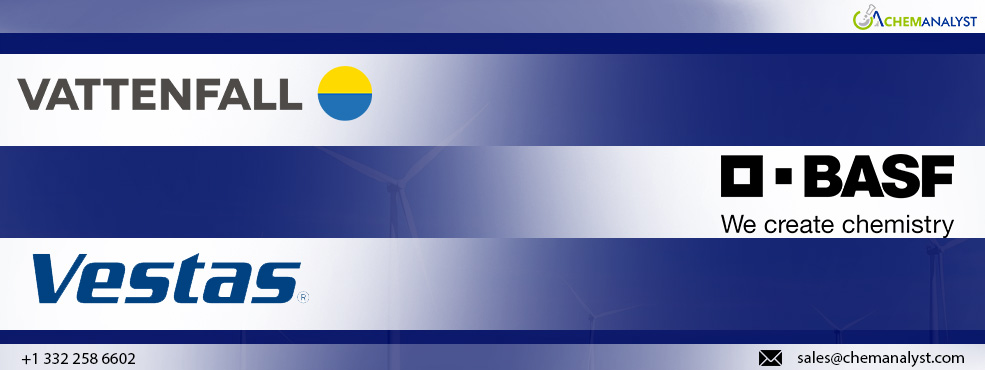Welcome To ChemAnalyst

Vattenfall and BASF have entered into supply and service agreements with Vestas for 15 MW offshore wind turbines at the Nordlicht offshore wind park in Germany.
The V236 turbine, boasting a nominal output of 15 MW, currently stands as the most powerful offshore turbine available in the market. By 2028, the Nordlicht wind park will generate electricity equivalent to the needs of 1.6 million households.
As Vattenfall accelerates the green transition, significant strides are being made to reduce CO2 emissions across the entire supply chain. 56 out of the 112 turbines will incorporate low-emission steel in their construction, thereby significantly lowering the carbon footprint of the towers.
Eva Julius-Philipp, Head of Environment & Sustainability within Vattenfall’s Business Area Wind, expressed enthusiasm about integrating low-emission steel into their projects. She highlighted that low carbon steel is crucial for achieving Vattenfall's SCORE target to reduce supplier greenhouse gas emissions by 50% by 2030, marking the beginning of this initiative.
The low-emission steel is derived entirely from steel scrap processed in an electric furnace, powered by 100% renewable energy. This approach reduces the carbon footprint by 66% compared to conventional steelmaking methods used for heavy steel plates.
Helle Herk-Hansen, Vice President Environment, emphasized the significance of decarbonizing the steel manufacturing sector, which currently contributes approximately 8% of global emissions. She highlighted that the project with Vattenfall and their partners underscores the necessity for low-emission steel to facilitate an energy transition aligned with the 1.5-degree Celsius trajectory outlined in the Paris Agreement.
A crucial aspect of Vattenfall's decarbonization strategy involves taking a comprehensive view of the entire value chain. Therefore, Vattenfall initiated SCORE, a project aimed at reducing supplier CO2 emissions in 2021. This initiative actively contributes to minimizing carbon footprints throughout the supply chain. As a testament to this effort, Vattenfall received the Supplier Engagement Leader Award earlier this year, marking the second consecutive year of recognition. The Nordlicht projects exemplify ongoing progress in this important endeavor.
The Nordlicht wind farm is situated 85 kilometers north of the island of Borkum in the German North Sea, comprising two distinct areas: Nordlicht 1, capable of generating approximately 980 megawatts, and Nordlicht 2, with a capacity of around 630 megawatts. Upon reaching full operational capacity, the wind farm is projected to produce approximately 6 terawatt hours (TWh) of electricity annually.
BASF has a 49 percent ownership stake in the Nordlicht 1 and 2 wind farm projects. Vattenfall is responsible for the development and construction of the Nordlicht sites, aiming to utilize its portion of the future electricity output to provide customers in Germany with fossil-free electricity. BASF plans to use nearly half of the electricity generated to power its chemical production facilities in Europe, notably in Ludwigshafen.
We use cookies to deliver the best possible experience on our website. To learn more, visit our Privacy Policy. By continuing to use this site or by closing this box, you consent to our use of cookies. More info.
